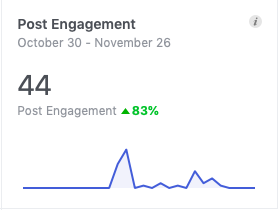This month, I launched my newest course, “Ask Better Questions, Write Better Resumes.” This experience — of launching my fourth course under the Resume Writer’s University school — has given me a solid understanding of what’s needed to create a course.

Whether you’re talking about a text-based course or a video course, jobseekers can benefit from learning strategies to help them with their job search. And you’ll love selling a course, since the high perceived value means you can charge more for a course versus other infoproduct formats (such as ebooks).
So, with that in mind, check out these three steps for creating courses your customers will love…
Step 1: Do Your Market Research
The first thing you need to do is figure out what your audience wants. A good way to do this is to find out what they’re already buying. You can check:
- Udemy.com to see what sort of video courses they are buying.
- Marketplaces like Amazon and ClickBank to see what sort of infoproducts they are buying in your niche.
- Websites in your niche to see what they are selling.
- Paid advertisements (such as sponsored ads) to see what they are promoting.
Popular topics are: preparing for a job interview, job search using LinkedIn, and salary negotiation/getting a raise. But there are other opportunities too: customizing the professionally written resume to target specific job opportunities, identifying your personal brand, conducting a successful job search, applying for positions online, and more.
Select a topic that looks like it will sell well, and then move to the next step…
Step 2: Decide What to Include
Next, you need to decide what to include in your course and start creating your outline. To do this, take two steps:
1. Brainstorm. Think up all the sub-topics, steps, tips, examples, mistakes, etc. you’d like to include in your course.
2. Research. Find out what similar infoproducts. Use this information for inspiration – do NOT copy.
NOTE: While you may choose a topic that others have done before, and you may even look to similar products for inspiration, your goal is to create something fresh. This means:
- Sharing unique strategies and tips.
- Including unique information — such as case studies, personal stories, and personal examples.
- Delivering information in a new way, such as turning a step-by-step formula into an acronym/formula.
Next step…
Step 3: Develop Your Course
Once you know what all information you want to include, then organize it into a step-by-step format. If you’re delivering the course in parts, then create equal-sized modules. (e.g., you might create a 12-module course and deliver one lesson/module per week for three months.)
Keep these tips in mind:
- Use a light, conversational tone.
- Add relevant stories to keep people engaged. For example, what problems do most jobseekers have when they are starting out with this topic? What mistakes do they typically make?
- Add value to your course. Offer worksheets, checklists, templates, swipes, planners, and cheat sheets to help people take action on what they just learned.
- Proof and polish. If you have errors in your course, people will judge the information as a whole to be low-quality. If needed, hire someone to proof and fact-check your course.
- Insert backend offers. Promote related products and services inside your course.
As always, you can outsource this entire task to a freelance writer (or video editor) to produce a polished end result.
We didn't talk about the technology, but I use the Teachable platform for Resume Writer’s University because it makes it easy to set up, market, and sell courses. It also includes an affiliate program, so you can let other people promote your course and share a referral commission with them.
Conclusion
Create a course once and it can provide residual income.
-->





















